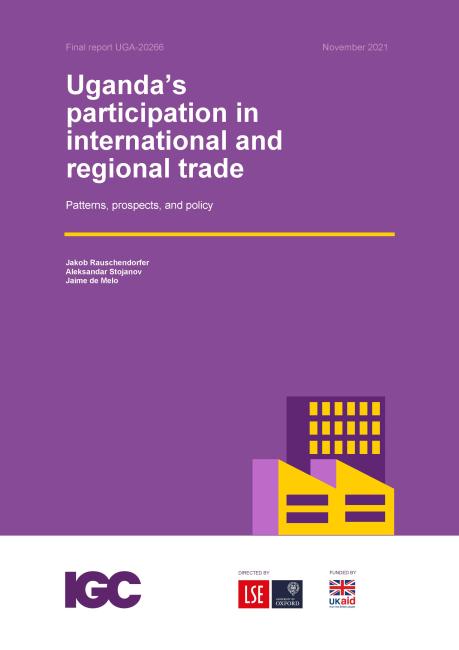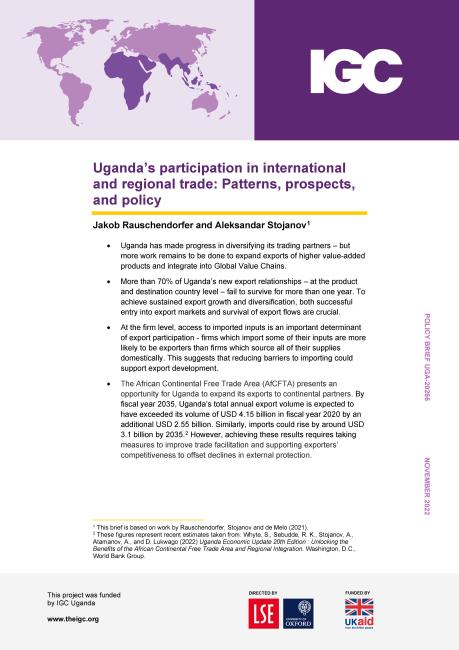Uganda’s participation in international and regional trade: Patterns, prospects, and policy
This project review Uganda’s export performance with a focus on identifying priorities for reform to boost exports in the future.
Trade growth will be a substantial component of Uganda’s economic recovery after the COVID-19 pandemic and has been identified as a central goal by the Government of Uganda. In this project we review Uganda’s trade performance over the past years with a focus on identifying drivers and hinderances to improved trade performance. The project is on direct request by the Private Sector Development Unit under the Ministry of Finance, Planning and Economic Development.
To analyse Uganda’s trade performance, we combine long run international trade data from public sources (e.g., WITS) with Ugandan micro-data sets detailing private firms’ trade transactions (imports and exports) as well as their Corporate Income Tax declarations and sectoral affiliations. We complement this data on formal trade with data on Uganda's Small Scale Cross Border Trade. We also review available secondary literature, among others to shed a light on the performance and constraints of individual agricultural value chains.
Several findings of policy import emerge from the analysis. Among the most important ones are that imported inputs matter greatly for Uganda’s export performance, that a small number of firms dominates key value chains (e.g., dairy or coffee), that recent tariff increases did not lead to reduced import volumes of targeted goods, and that in the aggregate Uganda trades to little, among others driven by low export survival rates.




